El Salvador’s Champion
President Nayib Bukele says he has defeated El Salvador’s gangs and brought peace to the nation. But the reality is more complex.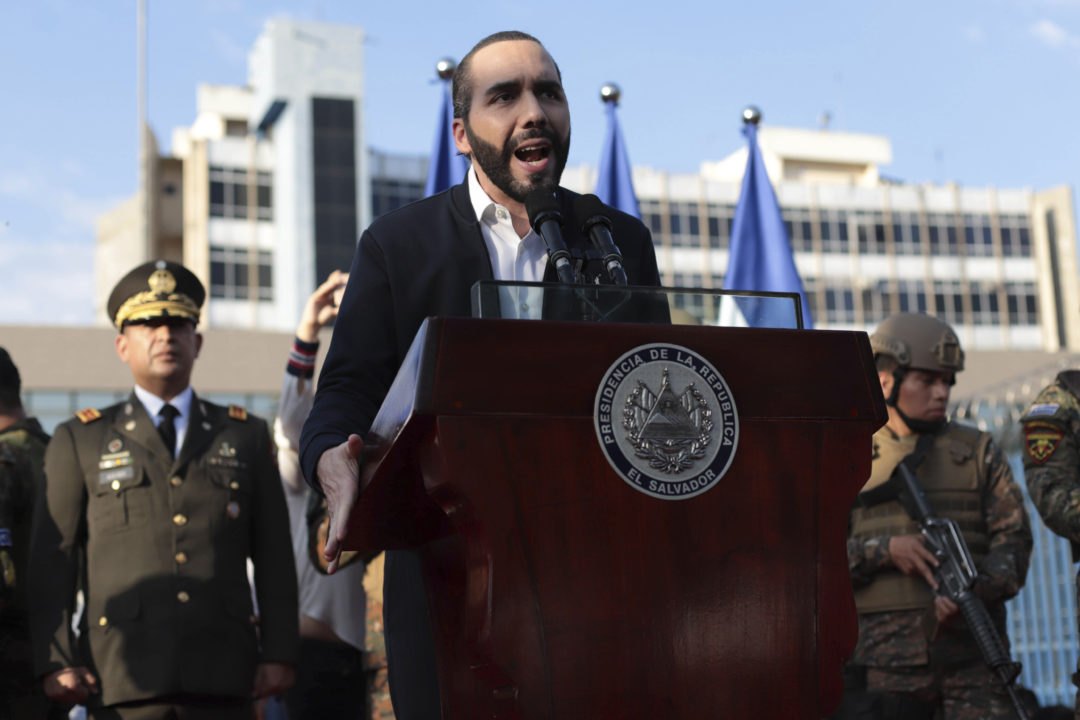 El Salvador's President Nayib Bukele, accompanied by members of the armed forces, speaks to his supporters outside Congress in San Salvador, El Salvador, in February 2020. (AP Photo/Salvador Melendez, File)
El Salvador's President Nayib Bukele, accompanied by members of the armed forces, speaks to his supporters outside Congress in San Salvador, El Salvador, in February 2020. (AP Photo/Salvador Melendez, File)
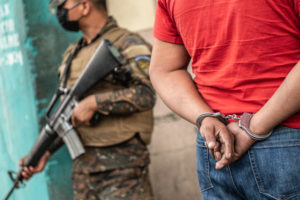 Photo Essay
El Salvador Under the Gun
Photo Essay
El Salvador Under the Gun
President Nayib Bukele will go down in the history of El Salvador as the person who put an end to the traditional parties, those that he and bukelismo, his political current, call “the Cold War parties.” Since the 2019 presidential elections that he overwhelmingly won, he has not stopped accumulating electoral successes.
In the legislative and local elections that followed in 2021, his party — Nuevas Ideas (New Ideas) — accumulated such a number of votes that practically all the mayorships in the country are under his banner. The same holds true with legislative seats. Of 84 deputies, 55 are under his control, and this is without counting the deputies of other allied parties or those who have ended up bowing to the president’s designs. Without exaggeration, we could say that President Bukele won everything, politically. At the electoral level, El Salvador had never seen a phenomenon of this type. However, as a fellow journalist recently told me, “Bukele did not appear from a puff of smoke.” To understand the political phenomenon that bukelismo represents, we first have to understand those who, at least within its narrative, are its enemies.
Nayib Bukele comes from a family of Palestinian origin, and his father Armado Bukele was a close friend and benefactor of one of the top leaders of the Salvadoran left, Shafick Handal, one of the guerrilla leaders of the 1980s who, after the war ended, positioned himself as the political leader of the Frente Farabundo Martí para la Liberación Nacional (FMLN) party.
The closeness of the Bukele family with this party led the younger Bukele to run for mayor of Nuevo Cuscatlán, a small municipality in the department of San Salvador, in 2014. From here, he began to create the narrative that now keeps him in power.
The propaganda deployed by Bukele built a narrative where that small town of under 10,000 people took off dizzyingly towards the highest levels of development. Mayor Bukele built an alternate reality where Nuevo Cuscatlán became an example of development for the entire country, and — why not? — for the entire region.
It did not matter that in that same municipality, in that same period, the clique, or faction, of the Teclas Locos Salvatruchos, a faction of the MS-13 criminal organization, accumulated, according to police reports, at least 26 bodies in a clandestine grave. That new Bukelian reality was creeping in everywhere. While his political opponents continued to campaign with songs and by giving away cups and T-shirts, Bukele took over social networks, filling Facebook and Twitter with propaganda. Suddenly, Salvadoran society, so used to seeing political proposals materialized in brooms and baskets with the flag of a party emblazoned on them, found itself exposed to a new form of political marketing.
With this scheme it was easy to reach the mayoralty of El Salvador’s capital, San Salvador, in 2016. He won by a comfortable margin over the opponent from the right-wing Alianza Republicana Nacionalista (ARENA) party, the second party of El Salvador’s binomial “Cold War” political division. At this time, he was still running under the FMLN label, but he took care to generate his own brand. He designed a logo with a blue-green “N” in the center, a kind of signature, and began to distance himself from the FMLN. Suddenly, the “bukelista” discourse changed. He began to make Salvadoran society see something that it already knew but suffered more or less in silence: that its two main parties, those two creatures born of the Cold War, were corrupt and abominable.
Bukele read Salvadoran society well. He read the ordinary person well. He knew how to convey these ideas efficiently. He understood, better than any academic, what made up the disgust and indignation of Salvadorans. But he also understood what hope was made of.
Bukele, ever an efficient self-publicist, created a category where he would have to put his enemies. “The same ones as always,” he called them. There, he put the two Cold War parties, the businessmen who did not submit to his designs, the largest newspapers in El Salvador, (with time he would put The New York Times, The Washington Post, Le Monde, The Guardian, the BBC and others there as well). In his narrative, it was the fault of these mysterious entities, largely financed from abroad, he alleged, that El Salvador was not making enough progress.
For the 2019 presidential elections, he definitively separated from the FMLN and eventually consolidated his own New Ideas party. Society could not pay attention to the alleged cases of corruption or the illegal hiring he carried out while being mayor of the capital, because the alternate reality, that Bukelian reality, was imposed as soon as you opened the phone or the computer. He left the classic politicians in the dust, dancing to their jingles and compulsively giving away T-shirts and calendars. By the hundreds there were, and still are, YouTubers and sudden digital “newspapers” praising the young president of El Salvador, the destroyer of the old corrupt structures of the past.
It was easy to rally the Salvadorans around him, to make them play for his team. The four previous presidents, two from the FMLN and two from ARENA, were found guilty of serious corruption cases.
“What else do these politicians have to do to us?” Bukele asked in one of his interactions with the press. And he was right. Of course, this reflection, over time, would also include him.
“What else do these politicians have to do to us?” Bukele asked in one of his interactions with the press. And he was right. Of course, this reflection, over time, would also include him.
When the independent press and the national academy woke up from that kind of trance in which they had also plunged, it was already too late. The first investigations into corruption, agreements between the government and the gangs, illegal purchases and hiring direct relatives, almost did not reach their target population. Salvadorans were already possessed by bukelismo. In the face of the investigations, Bukele threw the independent press and academics into the bag that he had already created of “the same as always,” the enemies of the people and indicated to the Salvadorans in which direction to now focus their hatred. The Salvadorans obeyed.
This was President Bukele’s formula: Create an alternate reality — one that is desirable, one that we all want to live in — and use that hope to destroy any establishment that aspires to share a podium with him.
But in El Salvador, not only political parties are a force. If something characterizes Central America, and I would dare to say Latin America, it is the multiplicity of actors that share and compete for power in the same national space.
In El Salvador, the maras — mafias of gang origin that were born in California among immigrant communities during El Salvador’s 1979 to 1992 civil war — dominated a good part of the national territory until 2020. Hundreds of neighborhoods, departments and cities were under their domination in what constituted a kind of parallel government. The power of the gangs — both MS-13 and its rival Barrio 18 — became so great in El Salvador that, in 2012, the government of President Mauricio Funes made a series of agreements with them in order to govern. Since that year, all the political forces have sought in some way the political support of the gangs, either to come to power or to stay in power. Bukele is no exception.
According to investigations by anti-corruption prosecutors and various journalists, Bukele began to have agreements with the gangs since he was mayor of the capital in 2016. He allegedly continued with these agreements when he obtained the presidency, but with the passage of time, these agreements were fractured and Bukele did the same to the gangs as to the political parties: destroy them from within.
From March 2022 until today, the Bukele legislature, under the guise of a State of Exception, has essentially rendered certain constitutional guarantees, such as the presumption of innocence, ineffective. More than 65,000 people have been arrested between March to December of this year. The Bukele narrative says that all of them are gang members or part of the gang structure. No doubt, some thousands are. But thousands more are not. Local and international human rights groups have charged the anti-gang mobilization has been marked by widespread human rights abuses. It doesn’t matter, though, the narrative is solid: They are all gang members. Bukele has sold Salvadorans the idea that human rights are for some, for honest people, not for gang members and that, in general, human rights represent a kind of obstacle to achieving true peace. Salvadorans have bought into this idea.
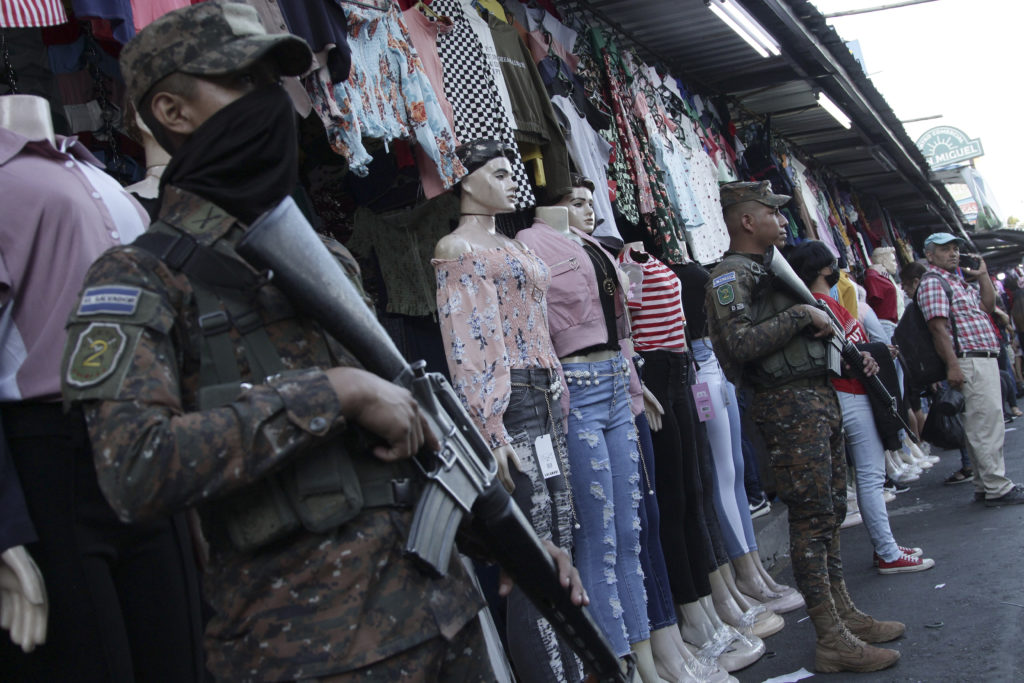
Right now, the gangs are in retreat. The police and military assault has been so intense and the incarceration so massive that the gangs have lost their territory and almost all their power. Their social base has been severely crippled and their economy depressed as they have lost much of their income from extortion.
Of the gangs, and of the political parties, the only ones that have survived and have maintained their power are those that have become attached to bukelismo. A major MS-13 leader, Élmer Canales Rivera, though better known as El Crook, was released from prison and personally taken by Carlos Marroquín, the head of the Directorate of Social Fabric, outside the Salvadoran borders. Another alleged MS-13 collaborator, Jorge Manuel Vega Knight, was also released this year and all his assets were returned to him. Journalistic and prosecutorial investigations determined that Vega Knight had as his defense attorney for 29 months none other than Rodolfo Delgado, Bukele’s hand-picked attorney general. It was recently revealed that police intelligence had previously investigated Vice Minister of Security and General Director of Prisons Osiris Luna Meza for possibly being involved with some of the country’s criminal structures. These figures have survived because they played but did not compete, they bet on getting attached to a larger animal, like fleas, and thus they have managed to conserve their power to a certain degree. A more sophisticated mob displaced a less sophisticated one.
Right now, Nayib Bukele is practically alone in power. He has managed to displace almost all the classes that competed against him, with almost the same strategy: Get close, wait for them to drop their guard and bite.
Salvadorans still celebrate the defeat of the gangs and celebrate Bukele as their savior. The mafia he presides over does not steal in the streets or kill on the buses, and for Salvadorans, that is enough for now. For this society, democracy, freedom of the press, the division of powers and alternation in power are valid offerings, sacrifices given to bukelismo to free themselves from the yoke of the gangs. Those things are missed in the long term, they are treasures that only those who have lost them can miss. For the moment El Salvador is satisfied. El Salvador celebrates its champion.
The savior is satisfied…for the moment.
Your support matters…Independent journalism is under threat and overshadowed by heavily funded mainstream media.
You can help level the playing field. Become a member.
Your tax-deductible contribution keeps us digging beneath the headlines to give you thought-provoking, investigative reporting and analysis that unearths what's really happening- without compromise.
Give today to support our courageous, independent journalists.


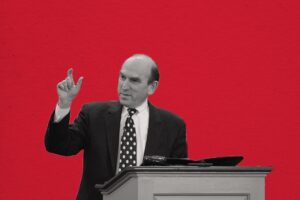
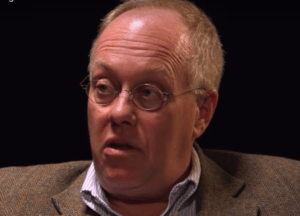
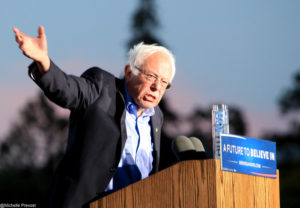
You need to be a supporter to comment.
There are currently no responses to this article.
Be the first to respond.